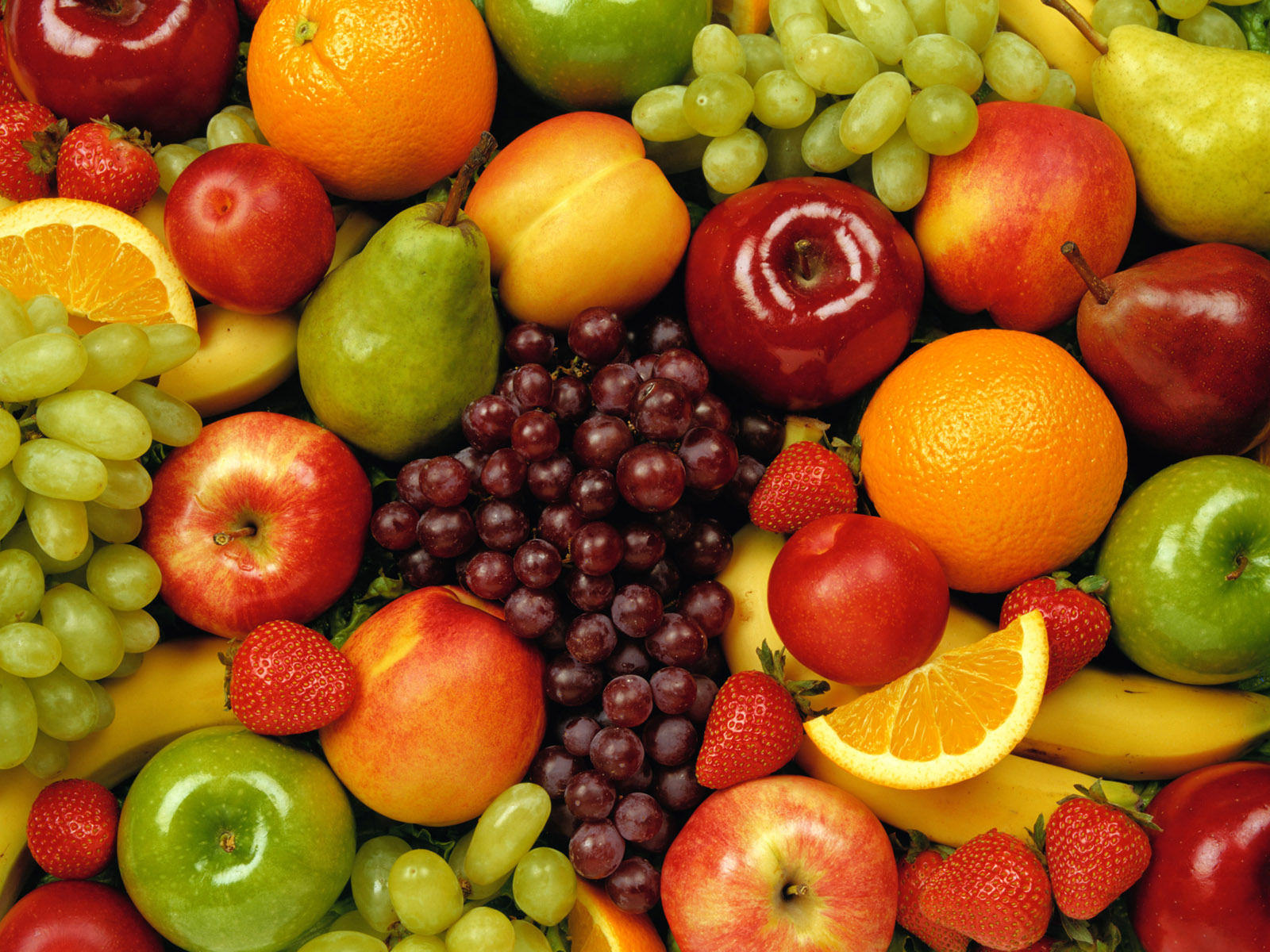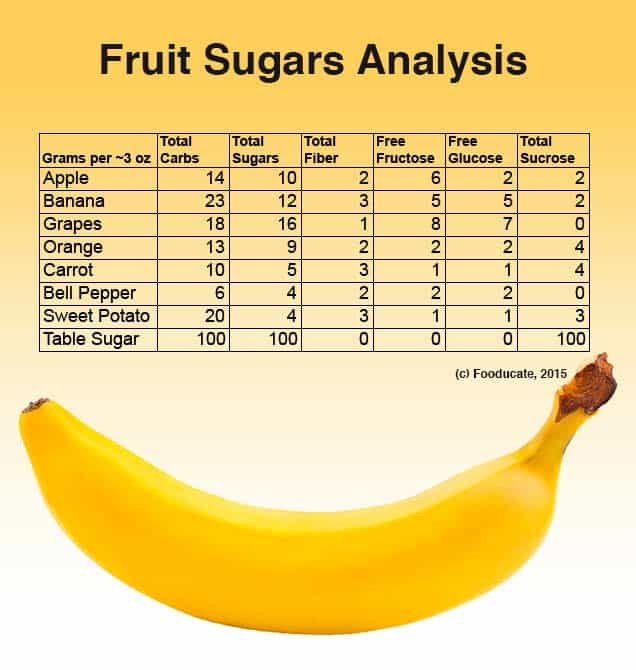“Is Sugar Found In Fruit Bad? I heard bananas are bad for you because of the high amount of sugar, is this true?”
The short answer is NO. However, nutrition is highly individualized, so the answer is a bit more nuanced. To begin, let’s take a look at the sugar content of fruit.
The sugars found in fruit are fructose, glucose, and sucrose. Fructose and glucose are monosaccharides, the basic building block of any carbohydrate. Sucrose is a disaccharide, composed of 2 monosaccharides. A sucrose molecule is composed of one molecule each of fructose and glucose.
As you can see in the table, the total sugars in any fruit (or vegetable) is a sum of the fructose, glucose, and sucrose found in the fruit. A banana has 12 grams of sugars, equal to 3 teaspoons. 5 grams are from fructose, 5 from glucose, and 2 from sucrose.
Let’s talk about fructose, a sugar of concern for some people. Although it is almost identical to glucose, fructose is metabolized primarily in the liver. Some research indicates that an excess in consumption of fructose may lead to weight gain and insulin resistance as well.
However, a review of observational studies published in Journal of the American Medical Association has shown that increased fruit consumption is tied to lower body weight and a lower risk of obesity-related diseases.
This is because fruit is not fructose; it comes with fiber, which slows down the absorption of sugars in the body. Fiber is one of the main reasons to eat fruit. Besides taming the effects of sugars, it helps promote satiety. Lastly, it improves the diversity of our gut microbiome.
Most people do no eat enough fruit. The recommended intake is 1.5 – 2 cups, yet less than 13% of Americans consume this amount. We’re talking about 2 fruits a day! A banana counts as one cup, as does a medium apple. Having a banana in the morning and an apple for an afternoon snack is not dangerous to your health. It’s good for you!
That said, if you have diabetes or pre-diabetes, your body is more sensitive to sugars of any type, even if ingested with fiber. In such cases, you should limit your fruit and sweet vegetables intake to focus more on leafy green vegetables. Always consult with a health professional if you are unsure.
This post is brought to by Fooducate.com
Source: Examining the Health Effects of Fructose – David S. Ludwig, MD, PhD – Journal of the American Medical Association, July 2013
Image Source: Joslin.org



